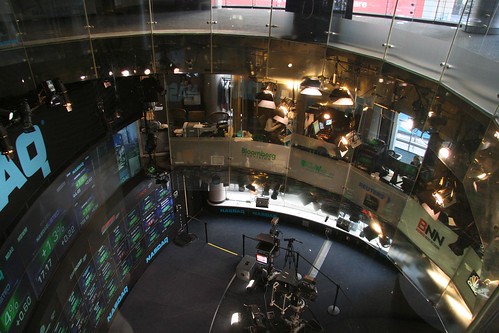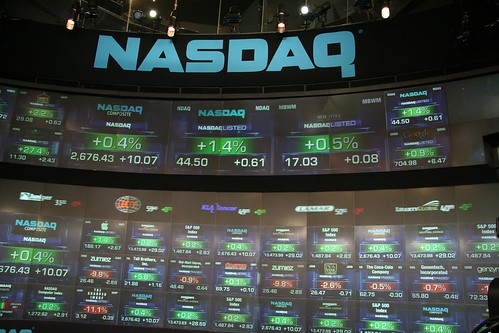What is the January Effect?
With 2009 mercifully behind us, believers in a bounce-back 2010 are staking their hopes on the “January Effect.” The January Effect, for those new to the concept, refers to how securities prices tend to rise in January. The main characteristic of this phenomenon is a rush to buy securities before the end of the year for a lower price, speculating that the price will go up in January, and then selling for a profit. There is also a strain of financial opinion which holds that market performance in January (good or bad) sets the tone for the entire rest of the year. For these reasons and more, January inevitably spells heightened interest in the goings on of the stock market – especially this year, when some analysts were already cautiously optimistic about an economic recovery. Today, we’ll take a look at this investment phenomenon with an eye toward its origins, historical significance, recent results, and potential impact on 2010.

When Did The January Effect Begin?
History shows that the January Effect predates its discovery by investors. As InvestmentU.com reports, “…from 1925 to 1993, small stocks beat large stocks in January in 69 of the 81 years.” Nor was it particularly close, as the return difference between big stocks (2%) and small stocks (7%) was roughly five percentage points during those same years. However, it was not until the early 1980’s when a University of Chicago grad student named Donald Keim observed this as an historical trend. Keim’s research found that not only did small stocks outperform the broader market during January, but also that the bulk of this disparity took place, “…before the middle of the month.” It was Keim who publicized the January Effect to investors at large, many of whom since came to regard January as something of a magical, once-yearly money machine.
As alluded to earlier, there are also those who see a strong or poor January as predicting the entire year. On January 5, the Chicago Tribune boldly proclaimed that the January Effect, “…often, but not always, sets the tone for the rest of the year” since 1950. The Tribune interviewed Harrison Financial Group principal Ray Harrison for their story, who likewise opined, “…if the first five trading days of January are up, the end of January will usually be up, and the correlated end of the year is usually up.” The strongest theory offered to explain the January Effect is tax-related; that is, individual investors (whose portfolios are disproportionately concentrated in small stocks) sell off securities en masse to claim capital losses and immediately reinvest after the New Year. Indeed, December often reveals a la! rge amount of apparently tax-related selling. This theory is plausible for as far as it goes.

What Have The Historical Results Been?
Of course, shrewd investors need more than the opinions of financial journalists – they need to know how the January Effect has (or has not) manifested itself over the years. We must begin by acknowledging the divide in financial opinion on this issue. While it is undeniable that small stocks have outperformed large stocks in many years, it is by no means clear that it always happens. DailyFinance.com, for instance, makes no bones about its view of the January Effect, calling it, “…more market myth than sound analysis” and portraying it as Wall Street’s version of Groundhog Day. While conceding that January was a weak month during 2008 and 2009 and both ultimately were down years, DailyFinance does not see this as corroborating the January Effect. For instance, January of 1929, “! ;…was off to a brisk start as the Dow Jones Industrial Average climbed to 317 from 307.” None of this slowed the onset of the Great Depression in any appreciable way. More recently, 1987 came out swinging, with the Dow soaring to 2160 at the end of January from a starting point of 1927 – before the stock market crash of that year. A similar story emerged in 2001, which despite a strong start eventually sank amidst fallout from the tech bust and of course, 9/11. One could argue that the down markets in those years resulted from systemic problems unrelated to January’s performance, but of course, the same can be said of 2008 and 2009, which are often held up as recent proof of the January Effect.
InvestmentU maintains that the January Effect was once real, but that it is, “… now dead – the simple reason being that once everyone on Wall Street knows something works, it won't work anymore.” As evidence, a table is cited showing that small stocks lost to large stocks from 1994-2000 (following Donald Keim’s publicizing of the January Effect in the 1980’s), and actually lost money during 2000, 2002 and 2003. Granted, small stocks beat large in 2001 and 2004, but the median return on small stocks in January was -0.2% from 1994-2004. “Said another way”, InvestmentU writes, “…since 1994, the January Effect has been a money-losing strategy.” That small stocks beat large in 69 of 81 years before mainstream investors knew about it constitutes strong presumption in favor of believing that the market has wised up! . InvestmentU concludes that the January Effect is “…interesting historical anomaly -one that hasn't been profitable for many years, and in my opinion will never be profitable again.”

What Does The January Effect Hold for 2010?
That said, investors are still curious to know what (if any) impact the January Effect will have on 2010. Opinions are, again, divided. SeekingAlpha states that, “…the January effect has morphed over time” and that, “…we will either have no January effect or a new January effect” this year. Primarily, this owes to the fact that there weren’t many losses for people to take in December; the bulk of the taxable losses occurred last December.The only people with losses to take in 2009 were, “…those that have held stocks through the market cycle” – in other words, “…long term investors” who are, “…most likely heartened by the performance of their stocks since march and therefore probably will not sell them to take significantly smaller losses”! than they took in December 2008. Still, others are more optimistic about a potentially helpful January Effect in 2010. Globe Investor not only believes it still exists, but offers predictions on five stocks that will benefit from it this year. The overall consensus seems to be that any stock bump in January will be warmly welcomed, but does not necessarily predict how the rest of 2010 will shake out.
Read more about Early Market Optimism, Dissecting the January Effect…


No comments:
Post a Comment